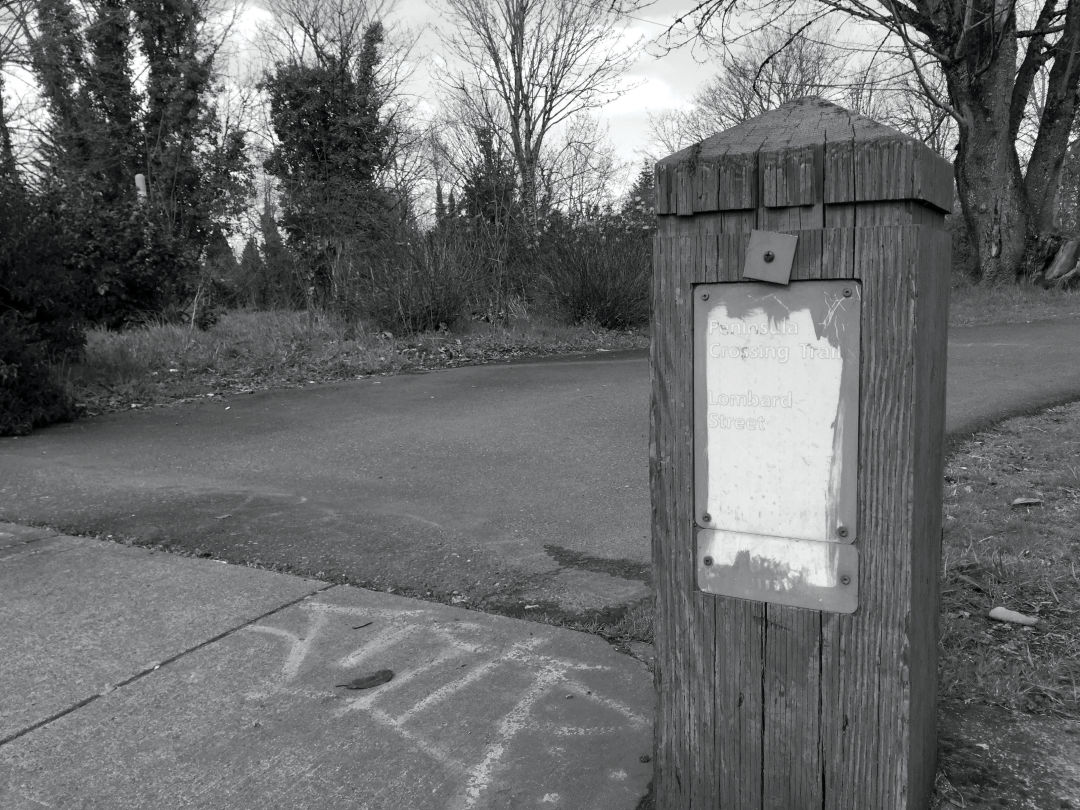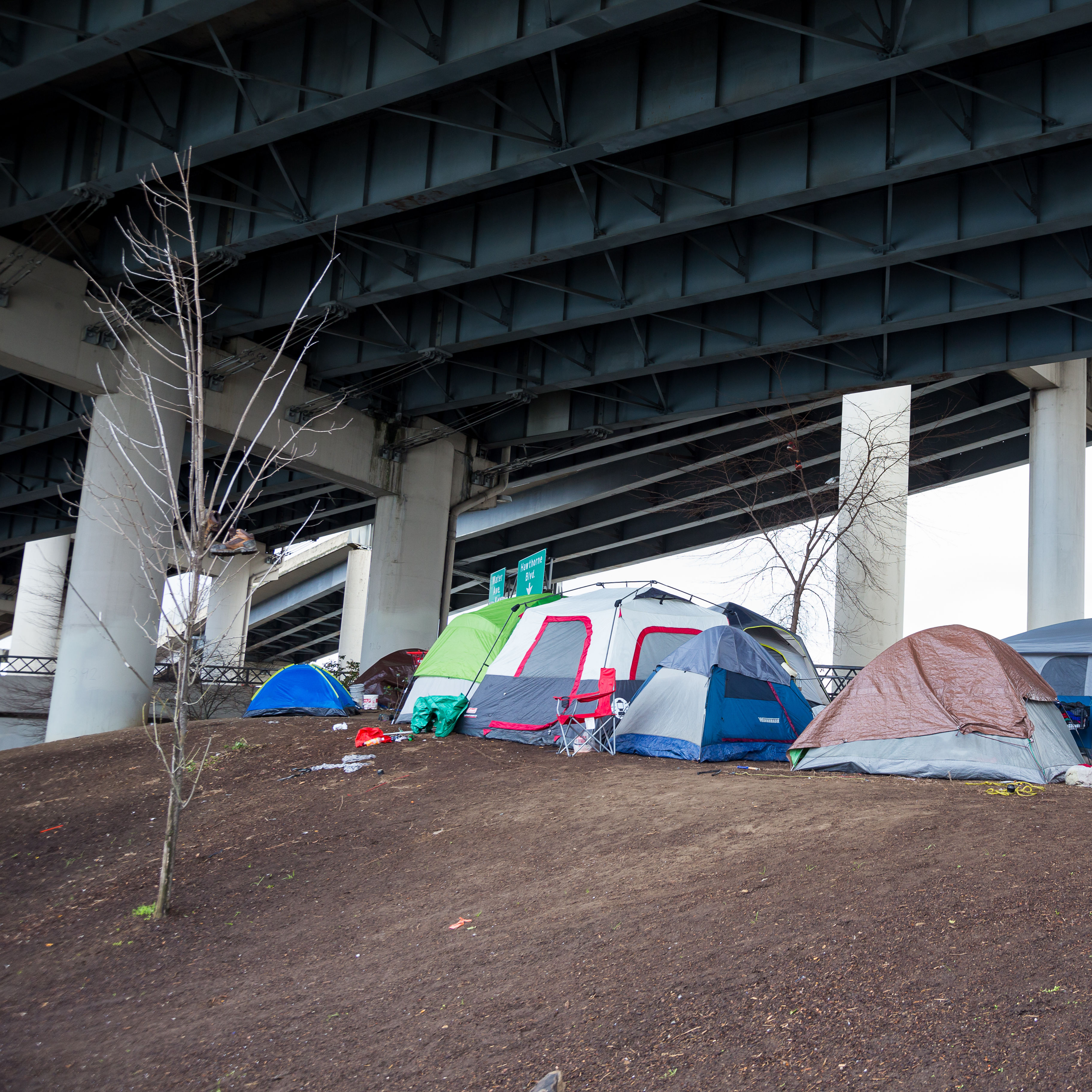How One North Portland Neighborhood Is a Microcosm of Our Homelessness Problem

The Peninsula Crossing Trail
Image: Margaret Seiler
The Peninsula Crossing Trail, a paved, tree-lined path that stretches between the Willamette and Columbia Rivers along St. Johns’s eastern edge, was once an easy escape from the urban bustle for area neighbors. Lately, it’s better known as a homeless encampment, another nexus of tension in a city where those with shelter and those without find themselves increasingly at odds.
“When there are camps, there tends to be an influx of trash,” says Jacob Williams, president of the University Park Neighborhood Association. “You see drug paraphernalia. That doesn’t make you feel happy for your neighborhood, or necessarily feel safe. My family will ride bicycles [on] the trail during the daytime, but we’re less likely to [ride] at night.”
Alvin Taylor is homeless and currently based in St. Johns. He has friends living on the trail. “They are just trying to survive,” he says.
It’s an increasingly familiar story in Portland, with only the setting changing: downtown’s Highway 26 Market Street exit, along outer Southeast’s Springwater Corridor, or in tight-knit Montavilla. In each case, it’s an issue compounded by conflicting interests—neighbors balancing a desire to help with fears for safety and cleanliness, people with few options for shelter, and a budget-strapped city government. And it’s not getting any better.
When residents complain, it’s the city’s Homelessness/Urban Camping Impact Reduction Program that swings into action. Last February, this team surveyed and cleaned the city-owned portions of the Peninsula Crossing Trail. In a single day, they removed 75 bags of trash and 500 needles. They completed 2,103 of these projects across the city in 2018, and there’s no end in sight. “On a slow week, we’ll get probably 400 [reports of homeless camps],” says HUCIRP Program Specialist Jonathan Lewis. “But we get up to 800 a week. That’s about where we’re at.”
While cleanup efforts like this may temporarily mollify neighborhood tension, they aren’t a permanent fix. “They try to push you out,” says Taylor, who has been kicked out of camps many times. “But you always come back if you can.”
One bright spot? In February 2018, the city and Multnomah County’s Joint Office of Homeless Services began taking a more proactive approach to the issue, partnering with local nonprofits Central City Concern and Transition Projects to send teams of outreach workers to heavily impacted areas like the Peninsula Crossing Trail to connect with people facing homelessness. They offer shelter beds, detox, and other services before the sites get cleaned up.
“It’s aimed at prevention,” says Lewis. “The idea here is that we can prevent folks from coming back by connecting them to the services they’re really looking for.”






